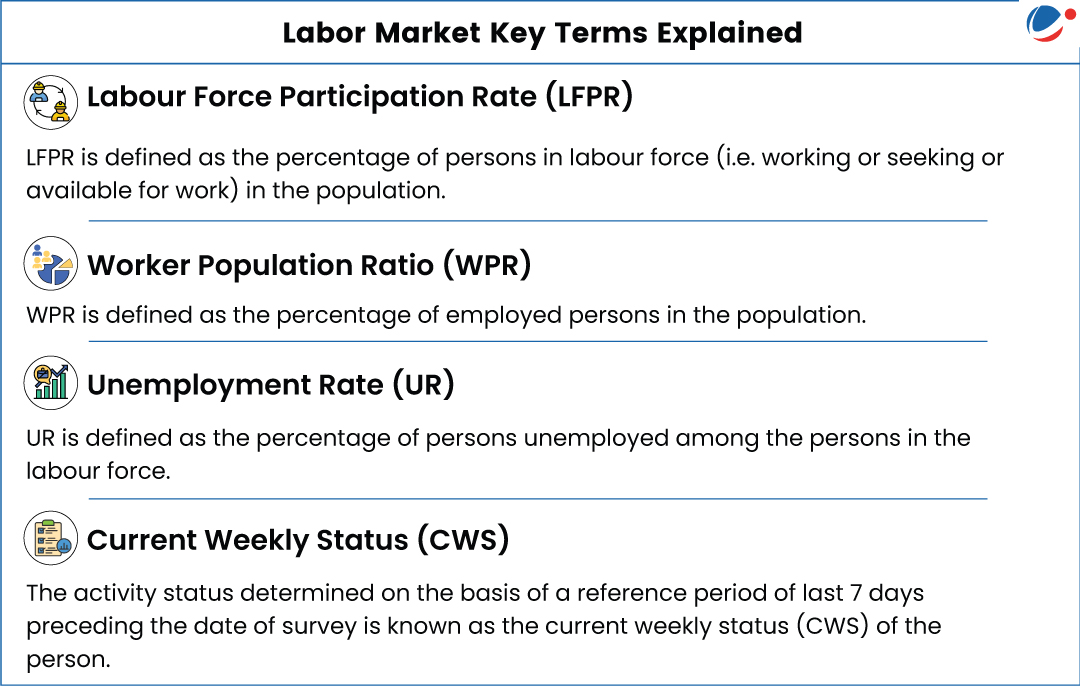The NSO (under Ministry of Statistics & Programme Implementation (MOSPI)) has brought changes in the PLFS to address the requirement of the high frequency labour market.
- PLFS was launched in 2017 by NSO, MOSPI.

Key Changes in PLFS from January 2025
- First time ever: Monthly release of labour indicators like, Labour Force Participation Rate (LFPR), Worker Population Ratio (WPR), Unemployment Rate (UR), at the all-India level.
- It will be based on Current Weekly Status (CWS).
- Quarterly Estimates Extended: Estimates of employment unemployment indicators will now covers both rural and urban areas (previously urban only).
- Annual Reports on Calendar Year Basis: New cycle will be January–December format (Previous: July–June format)
- This ensures better alignment with international databases.
- Enhanced Sample Size: The sample size of households has been increased by 2.65 times.
- This improves the precision and reliability of labor market indicator estimates.
- Improved Geographical Representation: District made the primary geographical unit for most areas, improving localized data collection.
- Rural stratification is based on village distance—within 5 km of district headquarters or cities/towns with over 5 lakh population.



